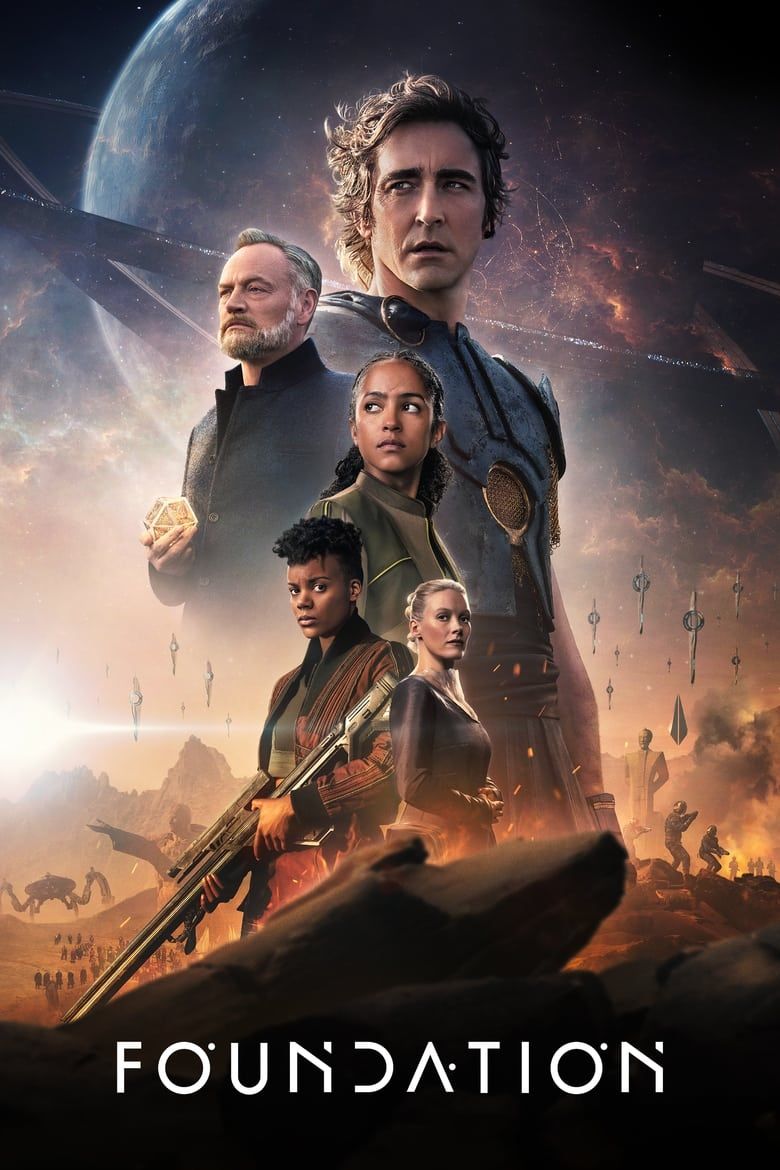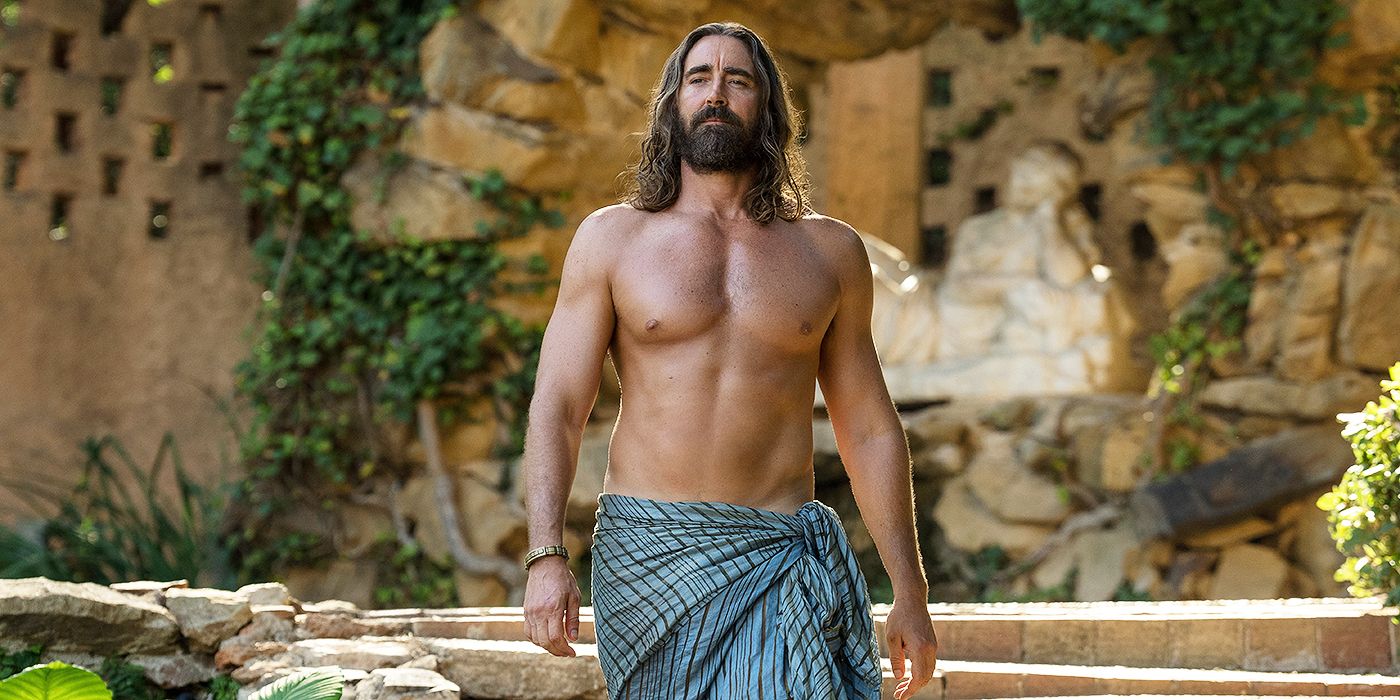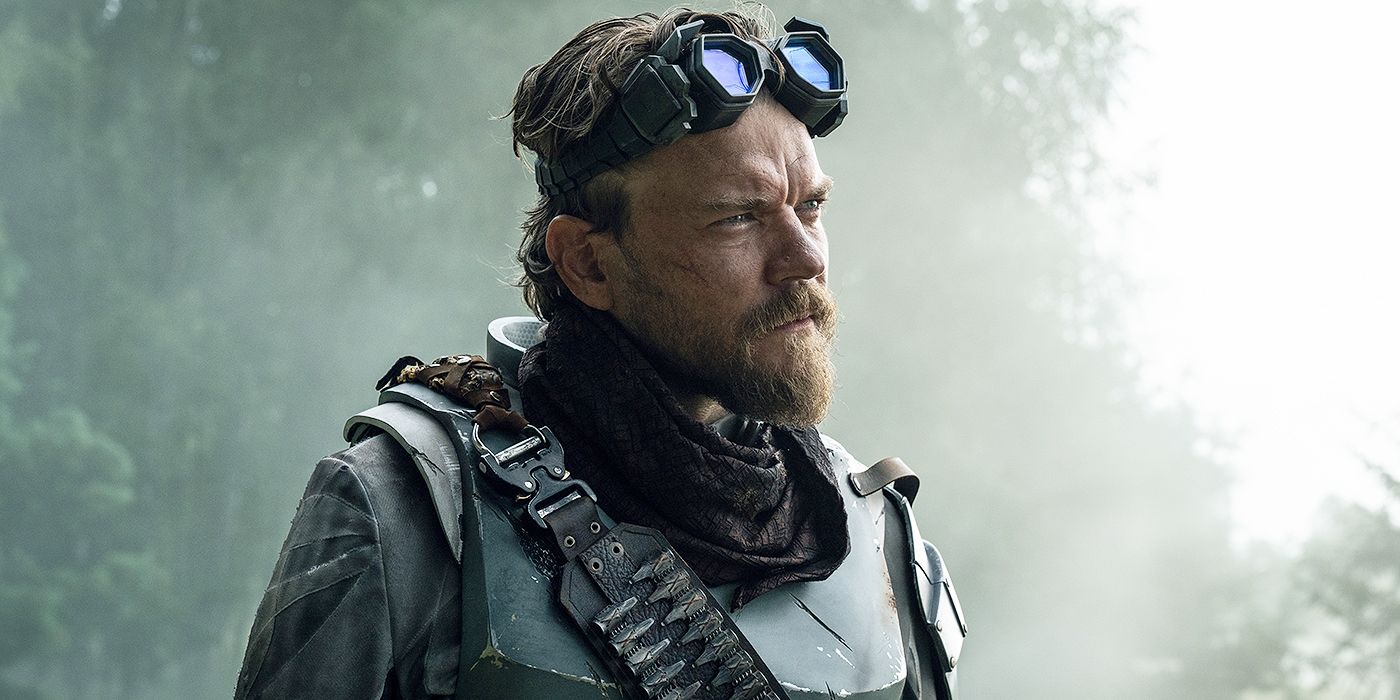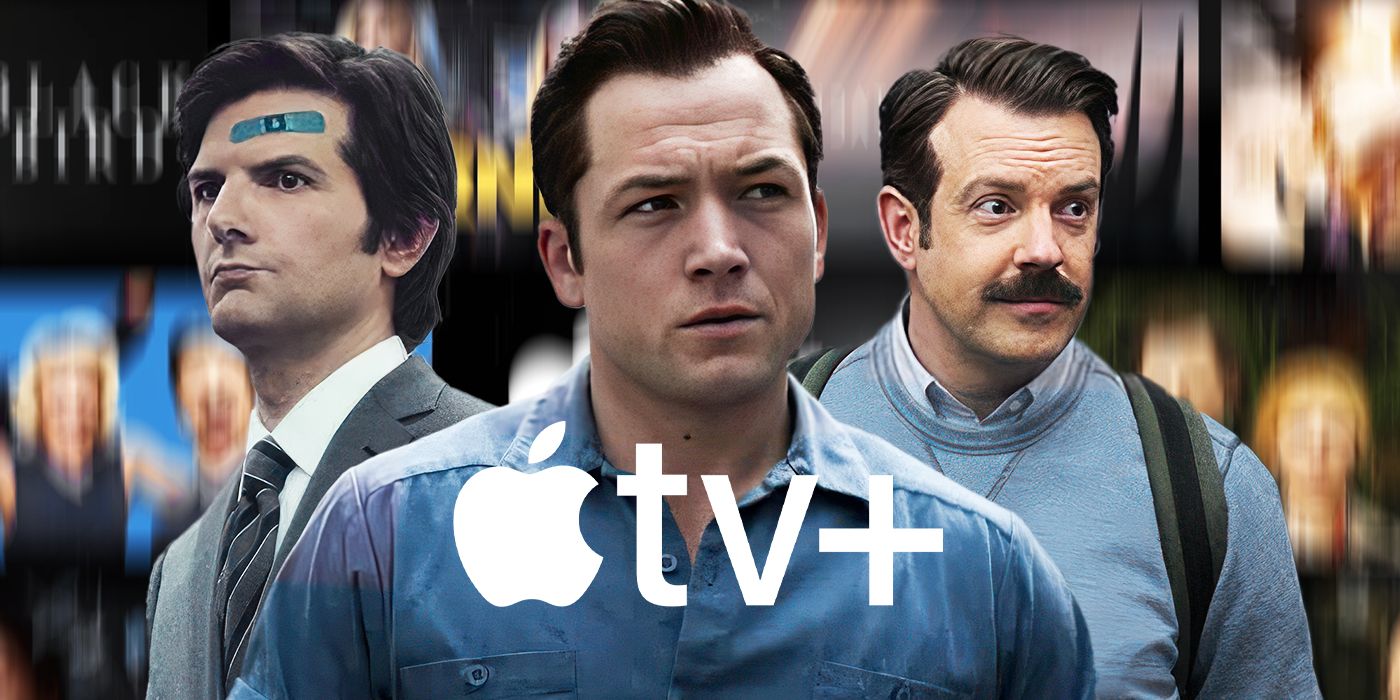Editor’s note: The below review is based on Episodes 1-9 of Season 3 of Foundation and does not include the finale.Isaac Asimov‘s most famous work, Foundation, has always been considered something that is impossible to adapt. Not only are Asimov’s concepts in the literature quite complicated, but the hard sci-fi aspect often takes away the part of the story that viewers connect with the most: the characters. After three seasons, it’s fair to say that the Apple TV+ series created by David S. Goyer and Josh Friedman has done the impossible in creating something that is not only engaging but holds to the soul of what Asimov’s story is all about.
That being said, Foundation isn’t a perfect series, and for those who aren’t familiar with the world that Asimov created, tuning in for each new season can be jarring, and the jump from the second to the third season is the most jarring of all. However, with a strong central cast that has thankfully remained unchanged since the first season anchoring the show, Foundation remains one of the best space operas on television.
The Weakest Part of ‘Foundation’ Season 3 Is, Unfortunately, Its Most Necessary
Unfortunately, the thing that holds Foundation back the most in Season 3 is the bevy of new characters that it introduces. Yes, this is nothing new, given past seasons, but it takes a while for the viewer to actually get back into the groove of the story. If it’s been a while since you last watched this show, a rewatch of Season 1 and 2 will benefit you greatly. In fact, I would say it’s almost required viewing.
Season 3 kicks off by dropping the viewer right back into the action, and because of the massive time jumps necessary to show the progress of the universe since the last time we saw these characters, the first couple of episodes are very exposition-heavy. We must catch up with our favorite Cleon emperors, Dawn (Cassian Bilton), Day (Lee Pace), and Dusk (Terrance Mann), along with their loyal but conflicted robot advisor Demerzel (Laura Birn). Not only that, but the human Hari Seldon (Jared Harris) and Gaal Dornick (Lou Llobell) have also been in and out of consciousness over the last 152 years, fostering the secret Second Foundation.
This is where the familiar ends, as we finally meet the much-anticipated Mule (Pilou Asbæk, recast from Season 2’s Mikael Persbrandt), and the biggest flaw of this show is totally unavoidable. The nature of the series’ timeline means that with every season and every time jump, we meet and connect with a whole new cast of characters. This includes Toran Mallow (Cody Fern), the descendant of Hober Mallow (Dimitri Leonidas) from Season 2, who is a far cry from his ancestor and is now the Foundation‘s version of an influencer. He’s recently gotten married to his fellow influencer, Bayta (Synnøve Karlsen), and their love story is arguably one of the better new character storylines.
There’s also Hans Pritcher (Brandon P. Bill), a member of the Second Foundation who has a close connection with Gaal, who acts as a sort of link between the older characters and the new ones. Similarly, Song (Yootha Wong-Loi-Sing), one of Day’s new court concubines, has become one of his closest confidantes as well. Also, in the Second Foundation, there’s the First Speaker (Troy Kotsur), and the (First) Foundation’s Ambassador Quent (Cherry Jones) on Trantor. Although the show does its best to tie each of these new characters to an anchor so that we know who they are in relation to the story, it still makes Foundation hard to follow in the early episodes and forces the narrative to spend a lot of time building on these characters to establish a connection with them.
The Villain of ‘Foundation’ Season 3 Just Doesn’t Work Very Well
The problem with all these new characters means that the villain, the mythical Mule, stays too mysterious. In some stories, that might work, but in the final season of this show, the villain should still not be a mystery. While a recast Pilou Asbæk does portray the character with the right sort of evil genius, the Mule is almost comical in comparison to the existing ensemble.
It’s no secret that the Cleonic Dynasty are tyrants, something they even call themselves, and over the last two seasons, we’ve seen just how cold and heartless they can be, how easily they can use and abuse and destroy people. However, we’ve also seen that they’re capable of love, despair, brotherhood, and connection. They’re flawed characters and easily some of the best written in the show.
On the other hand, the Mule is quite one-dimensional. This isn’t helped by Asbæk, best known by international viewers for his performance as Euron Greyjoy in Game of Thrones, who is a bombastic pirate figure (sound familiar?) that spends more time laughing diabolically and killing people left and right rather than feeling like a wholly fleshed-out character. It’s not like Foundation hasn’t done well with the few episodes it’s been given to make characters relatable and complicated; Song and Toran are good examples of that in Season 3. But the show seems intent on making the Mule the “ultimate villain,” and, as a result, he sticks out like a sore thumb among the characters who all have depth. His scenes are the weakest of the show, and nothing he does is that shocking because it’s expected.
In one episode, Dusk commits an act that is probably the worst war crime in science fiction history, and it comes as an absolutely devastating blow. You feel just how horrific his act is because we’ve come to like Dusk, and we have seen him contemplate his mortality throughout the season. Even when he does something so evil, we’re inclined to understand his reason why, and while we can’t agree with him or justify his actions, it makes sense for his character to act this way. Meanwhile, the Mule remains a sort of mustache-twirling villain who is dropped in whenever it is convenient to the story and ultimately feels unfinished.
The Heart of ‘Foundation’ Makes the Final Season Worth Watching
Thankfully, although the Mule is a large part of Season 3, he acts more as a cattle prod to force our characters to act, and that’s where the show works its magic. Among all the worldbuilding, the different foundations, the different guilts, the court politics, the clone emperors, and the telepaths known as Mentalics, the beating heart of Foundation keeps it grounded. No amount of praise is too much for the main cast. Although he’s in less of Season 3 overall, Jared Harris is once again a solid and powerful figure as two versions of Hari Seldon. The same can be said for Terrance Mann’s Dusk, who is playing his darkest version of this character yet.
The best of the season are undoubtedly Lee Pace’s Day, Laura Birn’s Demerzel, and Lou Llobell’s Gaal. We’ve followed these characters consistently for the entire show, especially when it comes to Demerzel and Gaal, who have been present since Episode 1. Day is a new iteration and a new clone, but Pace’s acting always manages to make each new version of Day feel unique. Day goes through quite a journey this season, and it reveals just how human these Cleonic clones are. We know this already, especially in previous versions of Dawn and Dusk, but this is Day’s most relatable form, and it does feel like he’s finally breaking from the mold of his forefathers (or forebrothers?).
Watching Gaal navigate through the years and adapt to the changes of their plan is just a testament to her strength as a character, especially when we’re afforded glimpses of the girl she first was when we met her in the pilot. Llobell stands as one of the strongest and most consistent actors in Foundation, and whether you realize it or not, we all revolve around Gaal Dornick’s character.
As always, it’s Laura Birn who deserves her laurels. Demerzel is one of the most powerful characters, both in terms of physical might and all of her memories, but she is also the most human and the most tragic. Enslaved to the Cleons, she is restricted by her programming and must sit and watch as atrocities are committed, both by the emperors and also by herself, and accept them because that is what she must do. Birn deserves all the praise, and Demerzel will stand as one of the best characters in science fiction long after Foundation is over.
If You Haven’t Watched ‘Foundation’ Yet, What Are You Waiting For?
The only thing that could have made Foundation easier to digest is either more episodes or a full three-season binge drop. And considering the economics of entertainment today, it’s doubtful that the show would ever have had more episodes commissioned, and dropping three seasons at once is simply unrealistic — but this is the type of TV that makes television so good. It forces you not only to remain engaged, but it also makes you feel for characters you might have only met an episode ago. The caliber of acting and writing is unparalleled, and the additions to the original source material only make the story deeper and richer.
This isn’t even talking about the beautiful visuals of the series that take us from planet to planet in seamless transitions, beautiful set design, and costuming that never fails to remind us of the story’s grandeur. The impressive special effects never feel low-budget, and even when some of the seams show, it’s bolstered by everything else in a way that only makes the plot more gripping.
The action and the drama also keep you sucked in, even if it might take a couple of watches to actually fully understand the complicated concepts of psychohistory or the different factions involved in galactic politics. If you’re looking for your next sci-fi binge, and you haven’t watched or caught up on Foundation, there’s never been a better time than now to discover one of the most underrated shows on Apple TV+.
Season 3 of Foundation premieres July 11 on Apple TV+. Seasons 1 and 2 are available to stream now.

Despite a complicated story and a weak villain, Season 3 still proves that Foundation is one of the best science-fiction space operas around.
- Release Date
-
September 23, 2021
- Network
-
Apple TV+
- Strongest performances yet from the core cast, especially from Lou Llobell, Lee Pace, and Laura Birn.
- An epic storytelling scale that has never been seen before.
- Strong work with some of the new characters who feel right at home in the universe.
- Pilou Asbæk is a weak addition as the Mule and the character is not given enough depth.
- The time jumps and character changes have never felt more obvious and weaken the storytelling.



